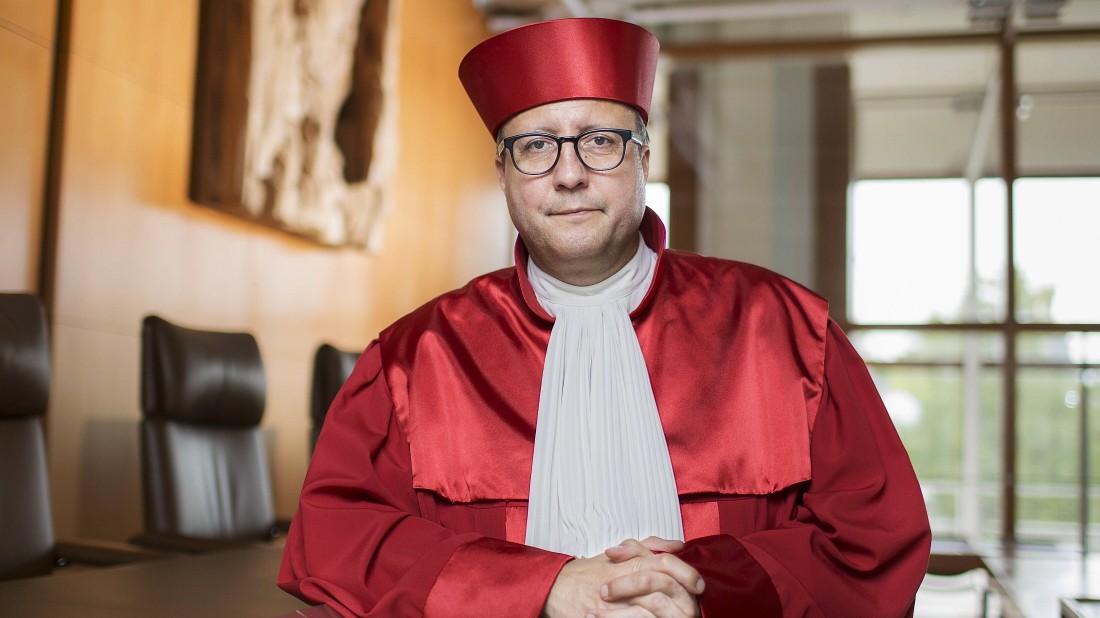Even during Voßkuhle's presidency, in 2020, the Federal Constitutional Court ordered the European Central Bank (ECB) to provide a detailed explanation of its asset purchase program launched in 2015, also overruling the previous decision of the Court of Justice of the European Union in Luxembourg. The Karlsruhe board considered that the judgment of the EU court did not comply with the proper application of the principle of the primacy of EU law either. According to the decision of Voßkuhle and his colleagues in robes at the time: "it is no longer absolutely understandable" the approval judgment of the EC regarding the loans provided by the ECB to the member countries and their exact reasons.
For a long time, there has been a strong opinion – mainly in politics, but increasingly in legal and professional circles as well – that the balance of power between the nation-states and the individual EU institutions in Europe should preferably be shifted towards Brussels. The Court of Justice of the European Union serves as a tool and a determining forum in this political endeavor; with its decisions, it is able to shape the current order of the central operating state, the equilibrium conditions existing within the EU.
It no longer (only) considers its own goal to have EU legislation interpreted and applied in the same way by each member state, it no longer wishes to be merely a neutral guardian of Community law, but through its activities as a legal interpreter and settler of legal disputes - sometimes openly, sometimes less spectacularly - seeks to expand its own powers. Voßkuhle himself has repeatedly accused the Luxembourg board of pursuing political goals. While the natural tension between the national constitutional courts and the European Court of Justice could only be resolved through dialogue, in Voßkuhle's view, the European Court of Justice engages in "collusive cooperation" with the other EU institutions, which, according to him, proves the body's "lack of independence".
For decades, many people saw the essence of Maastricht as a successful attempt to create the "inevitable" monetary union and a new world currency without simultaneously creating a political union with a federal system. Today, however, the view that would bring the Union closer to the establishment of the United States of Europe is becoming more and more dominant in Brussels. For a long time, the neoliberal way of thinking (that is, emphasizing economic and mainly market aspects) was dominant, and it was satisfied with the Maastricht solution.
The stabilization of the common currency would also have been entrusted to market control and self-discipline, but the crises showed that this alone is not a feasible path. Based on the lessons of the 2000s, an efficient state and national banks are also necessary, but at the same time, many people saw the way out in the federal centralization of Europe, for which institutions (such as the Commission and the European Court of Justice) began to serve as an important tool. Voßkuhle's German Constitutional Court also sensed something of this potential danger when, for example, it made its decision in 2020.
Although the basic treaties include the limits of the Court's jurisdiction, so the body cannot, for example, examine the compatibility of internal (national) law with EU law, or interpret the internal law of a member state, a completely abstract legal interpretation is obviously not possible. The European Court of Justice tried to somewhat resolve its difficulties in exercising powers, which (also) stemmed from this, by starting to expand its powers at the expense of the member states in the last decade.
The Court of Justice of the European Union is now itself an active political player, after around 2010 and after (for example, against Hungary) it took a stand in cases that other important institutions of the EU and, on the part of EU politicians - in the debates in Strasbourg and Brussels - are used to as rule of law cases and decisions refer to. Such were, for example, EC decisions that strongly affected the independence of the Hungarian judiciary or data protection regulations. And the rule of law policy in Brussels can promote the realization of EU ideas that tend more and more towards federalism and support ever closer political integration.
However, as a sui generis construction, the Union can never be a European federal state, it cannot be a federal system, but must remain a federation of nation-states, preserving the diversity and uniqueness of states, respecting national sovereignty - in contrast to Victor Hugo's United States of Europe from 1849- with his well-intentioned, but naive idea raised in
Author: Zoltán Lomnici Jr., constitutional lawyer
Source: basic law blog
Photo: Thomas Imo / Imago Images













